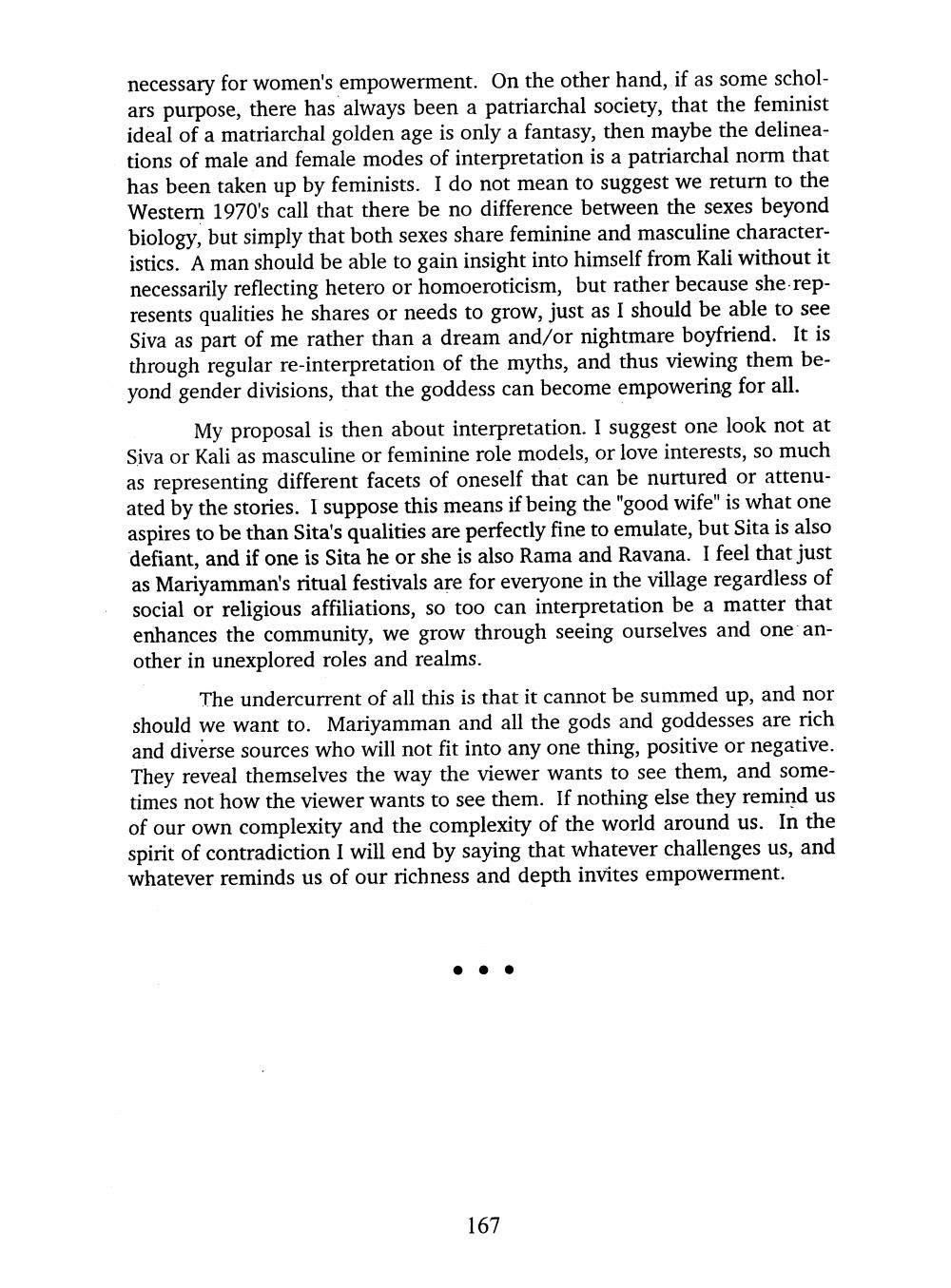________________
necessary for women's empowerment. On the other hand, if as some scholars purpose, there has always been a patriarchal society, that the feminist ideal of a matriarchal golden age is only a fantasy, then maybe the delineations of male and female modes of interpretation is a patriarchal norm that has been taken up by feminists. I do not mean to suggest we return to the Western 1970's call that there be no difference between the sexes beyond biology, but simply that both sexes share feminine and masculine characteristics. A man should be able to gain insight into himself from Kali without it necessarily reflecting hetero or homoeroticism, but rather because she represents qualities he shares or needs to grow, just as I should be able to see Siva as part of me rather than a dream and/or nightmare boyfriend. It is through regular re-interpretation of the myths, and thus viewing them beyond gender divisions, that the goddess can become empowering for all.
My proposal is then about interpretation. I suggest one look not at Siva or Kali as masculine or feminine role models, or love interests, so much as representing different facets of oneself that can be nurtured or attenuated by the stories. I suppose this means if being the "good wife" is what one aspires to be than Sita's qualities are perfectly fine to emulate, but Sita is also defiant, and if one is Sita he or she is also Rama and Ravana. I feel that just as Mariyamman's ritual festivals are for everyone in the village regardless of social or religious affiliations, so too can interpretation be a matter that enhances the community, we grow through seeing ourselves and one another in unexplored roles and realms.
The undercurrent of all this is that it cannot be summed up, and nor should we want to. Mariyamman and all the gods and goddesses are rich and diverse sources who will not fit into any one thing, positive or negative. They reveal themselves the way the viewer wants to see them, and sometimes not how the viewer wants to see them. If nothing else they remind us of our own complexity and the complexity of the world around us. In the spirit of contradiction I will end by saying that whatever challenges us, and whatever reminds us of our richness and depth invites empowerment.
167




